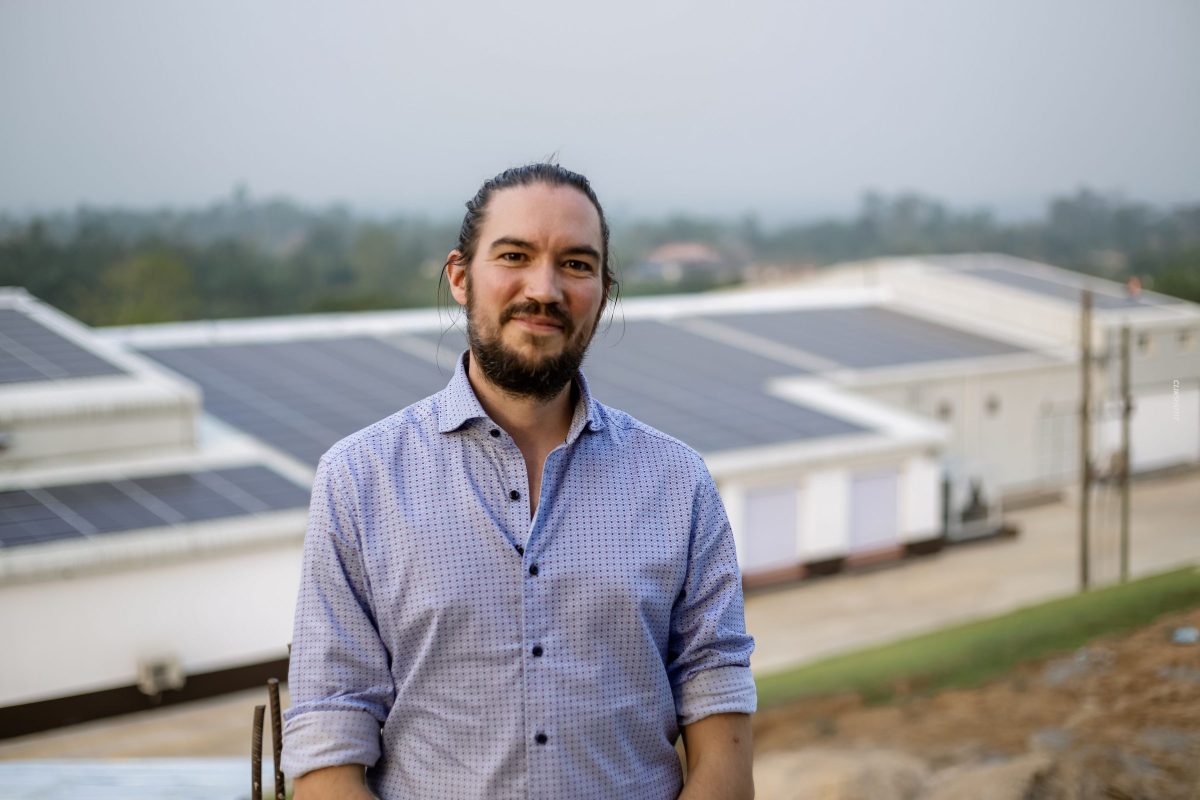Munich Startup: What does your startup do? What problem are you solving?
Hendrik Reimers, Fairafric: 75% of the world’s cocoa comes from West Africa, but less than 1% of chocolate is produced there. We’re changing that by producing chocolate right where the cocoa is grown, namely in Ghana. This creates skilled jobs and multiplies the income in Africa for each chocolate bar. We built the world’s first solar-powered organic chocolate factory and have been able to create almost 100 jobs so far. With our vision “Use business to end poverty,” we’re strongly committed to SDG 1 “Fight poverty.” The goal is to create 10,000 climate-friendly jobs on the African continent.
Fairafric: Chocolate that really is fair
Munich Startup: But that’s nothing out of the box!
Hendrik Reimers: It is. Of course, there are lots of “fair” chocolate brands on the market, but you have to take a good look at why they’re called “fair.” The chocolate is still usually produced in the northern hemisphere, which is where the cocoa beans are exported and processed into chocolate.
But not with us! The chocolate arrives pre-packaged in Germany and we sell it in Europe. As a result, we increase the local income per chocolate bar in Ghana by more than 400%. When a bar of chocolate is produced in Europe, about 13 euro cents stay in the countries where the cocoa is grown, with Fairafric, it’s 74 euro cents! Moreover, what “fair” means to us is to be fair to people and nature. Our chocolate has organic certification, plastic-free packaging and climate-neutral production.
Munich Startup: What’s your founding story?
Hendrik Reimers: I took a trip to East Africa in 2013 and saw how agriculture and poverty are related. I was moved by the question as to why raw materials are only ever exported from Africa and not processed directly in the country of origin. Driven by this thought, I focused on cocoa and chocolate, traveled to Ghana and met people who work in the industry. In 2016, we launched the first crowdfunding campaign, in which we offered Fairafric chocolate, made in Ghana, for the very first time.
Financing with bonds and chocolate vouchers
Munich Startup: What have been your biggest challenges so far?
Hendrik Reimers: Financing was and is very challenging, because many institutions don’t invest in Africa. But we now have more than 2,000 private investors by our side and have proven that anything is possible when you work together: In 2020, we built our own solar-powered factory in rural Ghana, right next to the cocoa plantations, in just five and a half months. Despite the pandemic, we managed to build up infrastructure and hire a team, and our dream of having our own chocolate factory came true.
Munich Startup: How is business going?
Hendrik Reimers: The pandemic and inflation have unfortunately affected our sales in recent years. With financial products such as bonds and chocolate vouchers – i.e. a loan where the interest is paid in chocolate – we’re giving our community the opportunity to revolutionize the chocolate world with us. We’re constantly developing Fairafric and are launching new products such as drops, fruit balls and other surprises this year.
Since our factory opened, we’ve increased sales by more than 150% and want to now gradually improve utilization to reach a capacity of 50 million bars a year. We only need to run at 15% capacity to reach the break-even point. That’s what we want to achieve in the years ahead.
Chocolate is just the beginning
Munich Startup: Where would you like to be in one year, and in five years?
Hendrik Reimers: With our new lines of business in contract manufacturing and semi-finished products, we produce both finished chocolate products and chocolate for further processing for existing brands. By doing so, we want to revolutionize the chocolate industry and establish ‘Made in Africa’ as a new industry standard. In the long term, we want to start our own agroforestry project, among other things, and grow sustainable cocoa in a direct relationship with our farmers and put more CO2 into the soil than we emit in the entire value chain. Chocolate is just the beginning. There are lots of products in West Africa that still don’t have added value, such as cashews.
Our concept can be applied to many raw materials from the African continent!
Munich Startup: Outsource it or do it yourself?
Hendrik Reimers: Do it yourself in Ghana to build infrastructure there, give people jobs and have the greatest possible impact in the country. We want to ensure a fully sustainable value chain and achieve the full potential. This requires very close collaboration and personal commitment in each and every step. That’s why handing over responsibility to others isn’t an option for us. We want to set a positive example and set a new standard for the entire industry.




